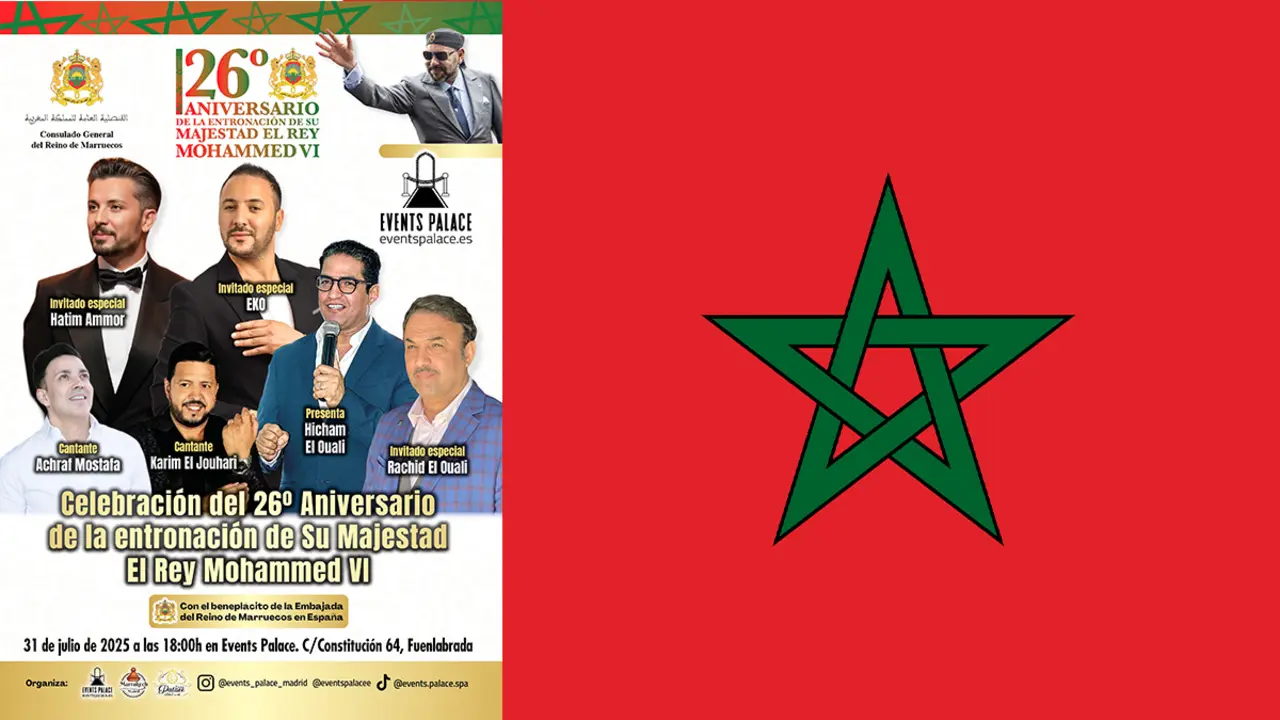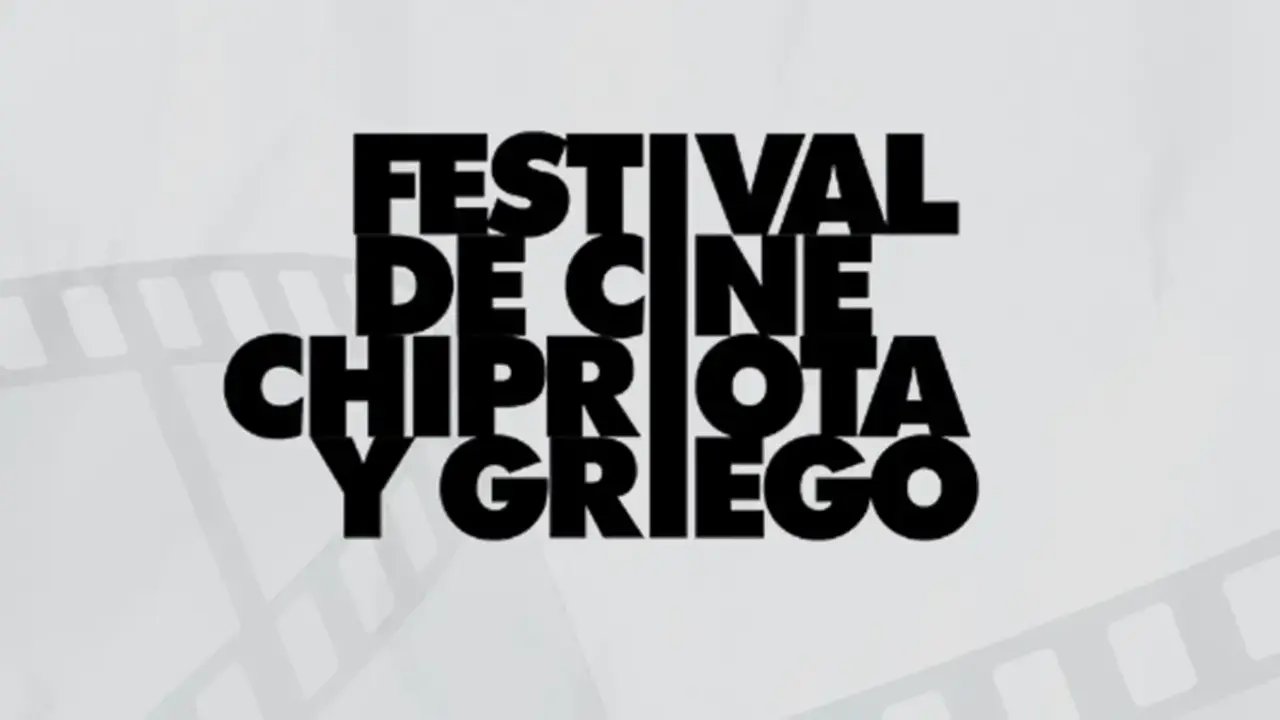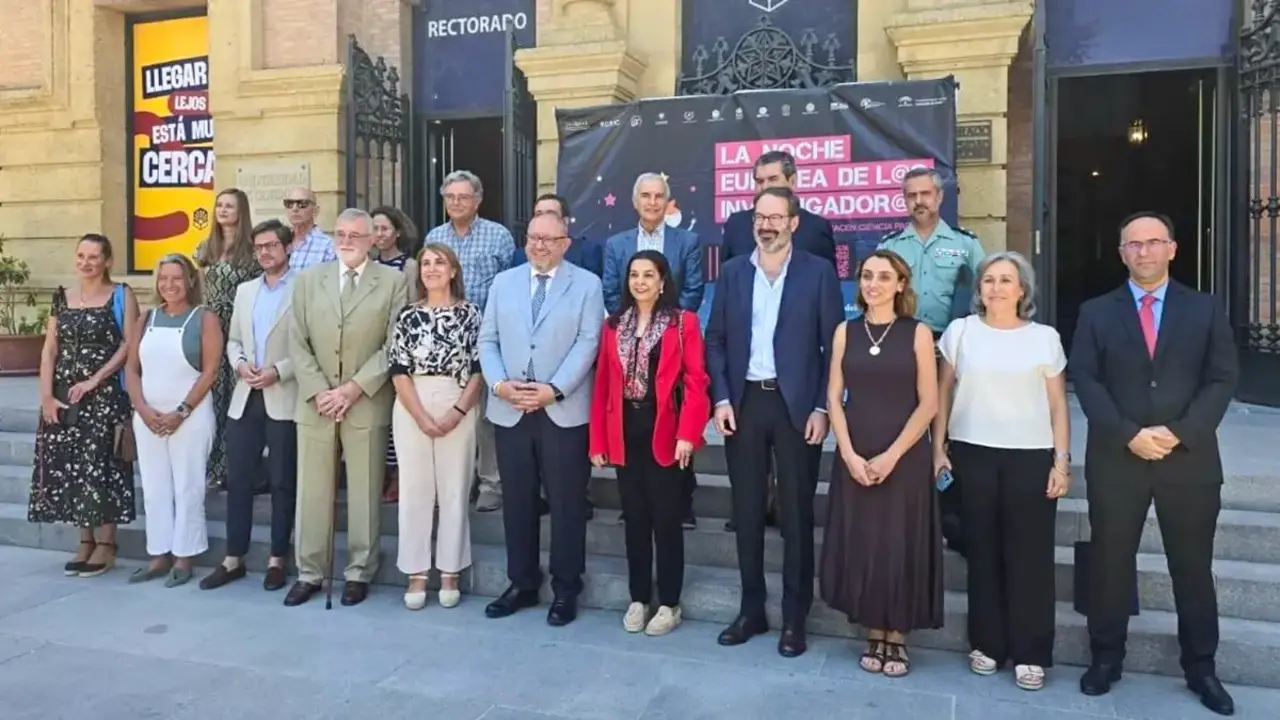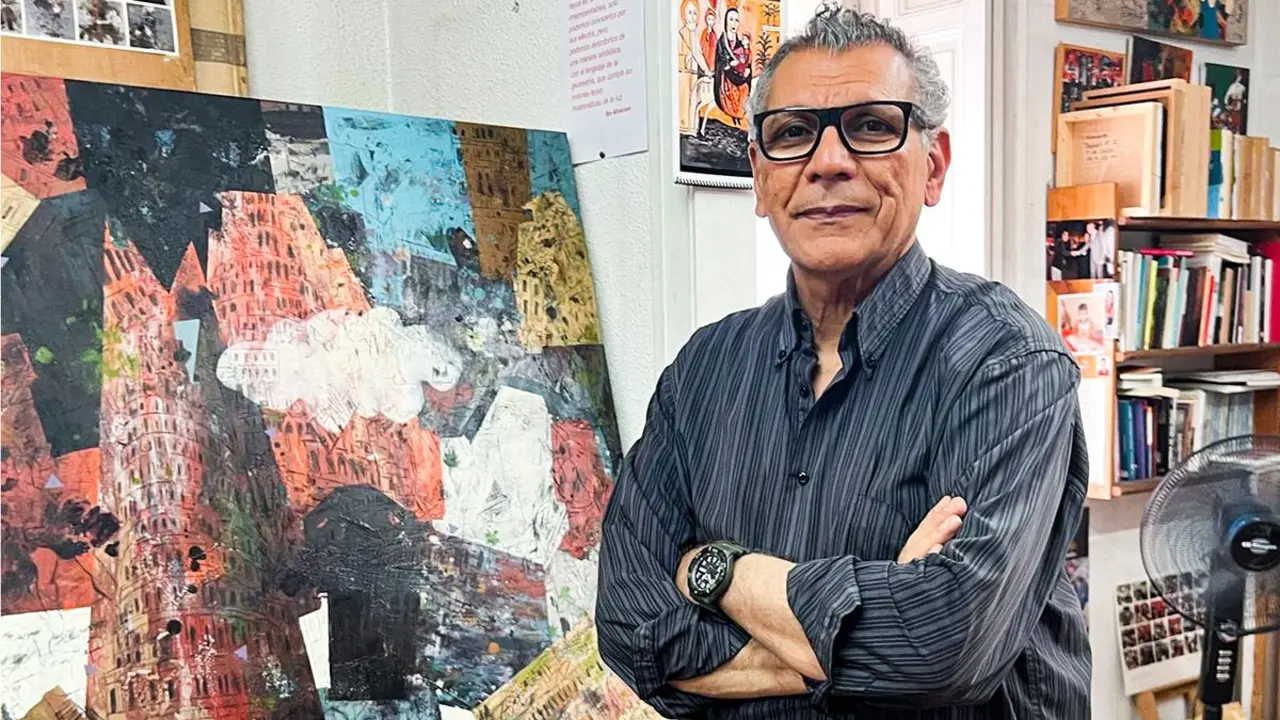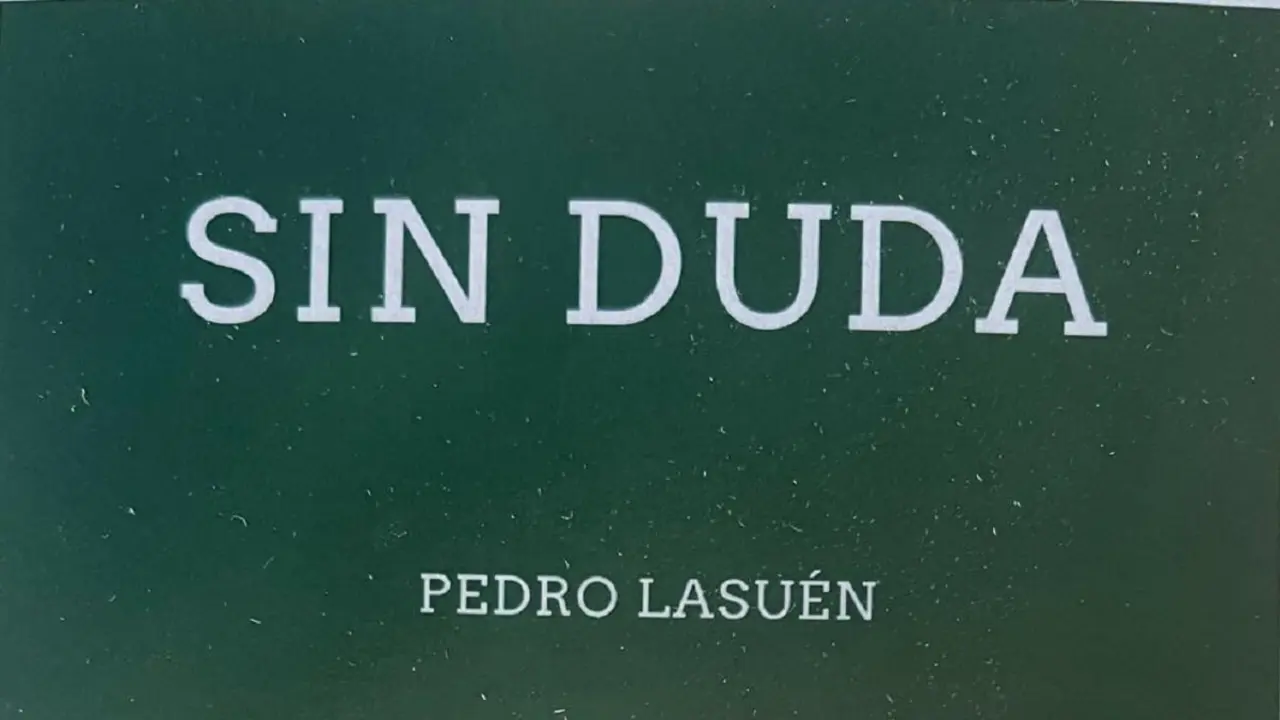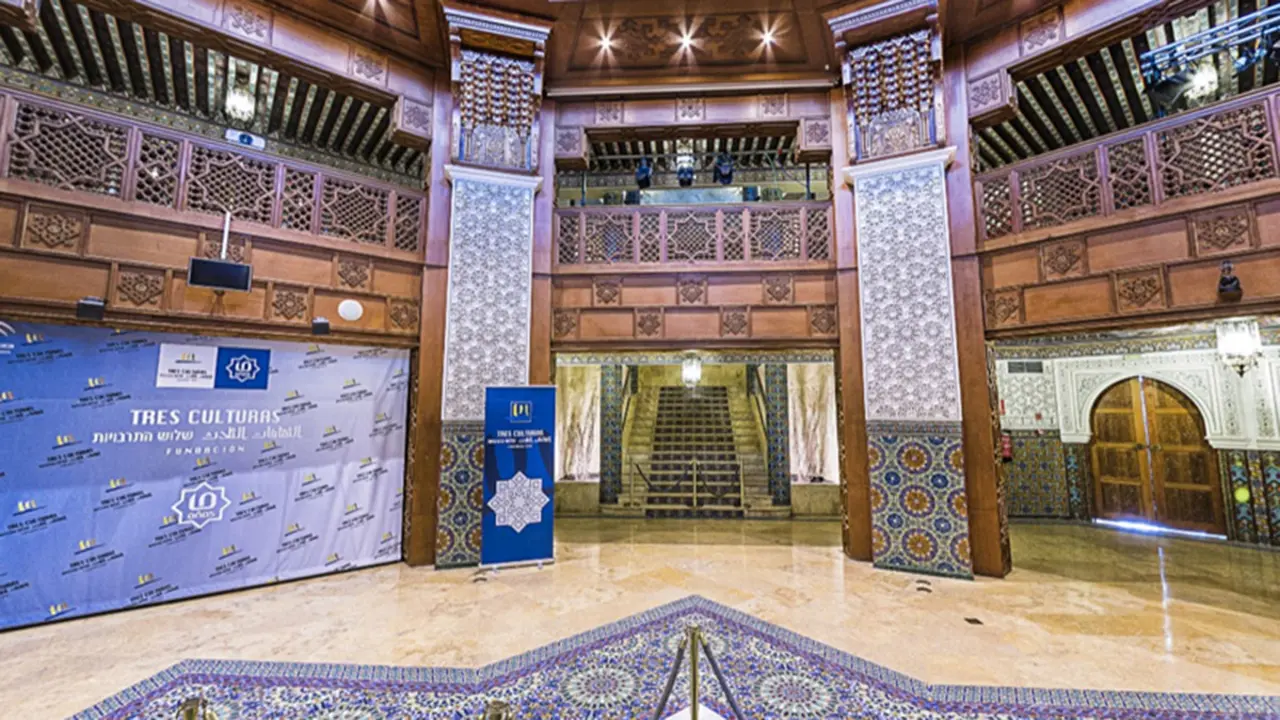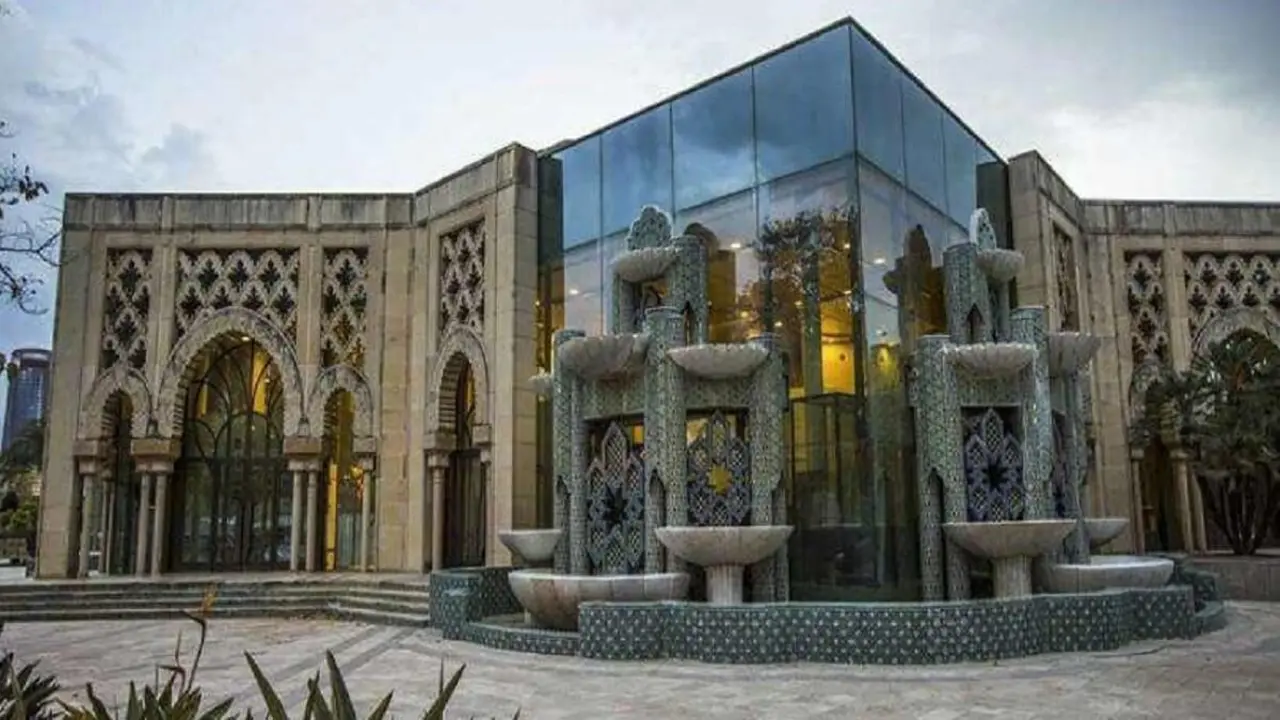Javier Cercas: ‘I am not and will not be active in social networks, unless they change radically’
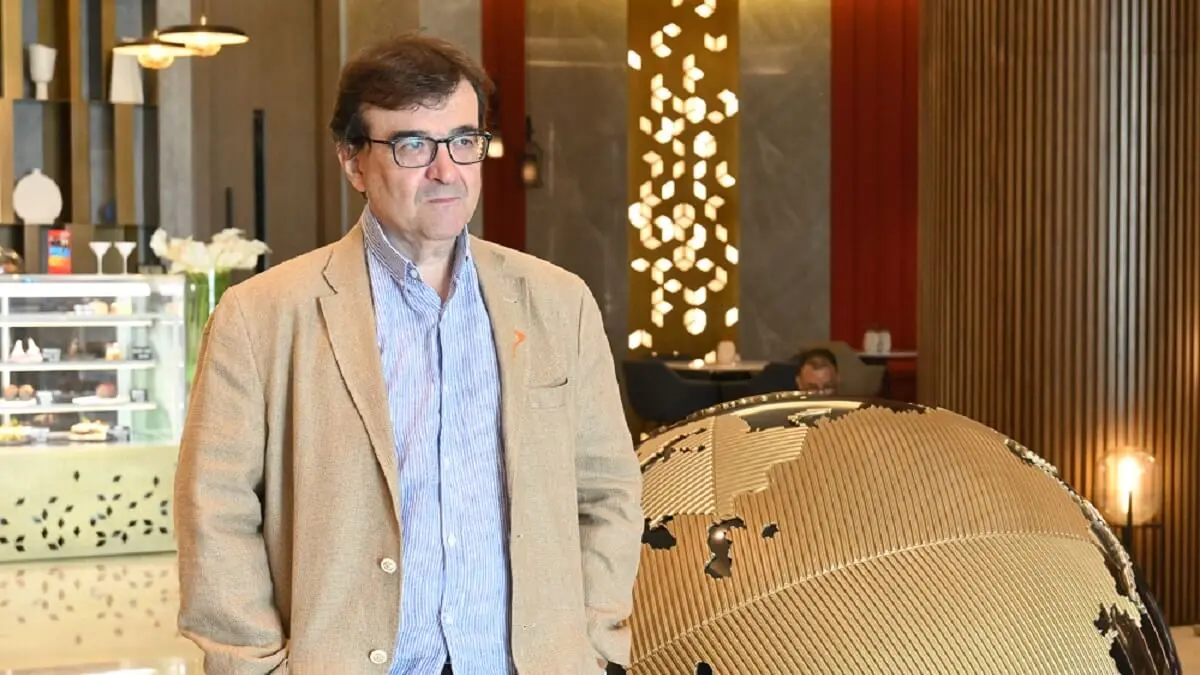
We are not going to find Javier Cercas on the social networks, but what we did not expect was to see him in Sharjah.
The writer was visiting the Arab Emirates for the first time to participate in the International Book Fair (SIBF). He was part of a panel that included writers Ali Bader (Iraq), Ibrahim Abdel Meguid (Egypt), Abdelilah Benarfa (Morocco) and Emirati Eman al-Yousuf. Atalayar took the opportunity to speak with this writer, who on 24 November will give his acceptance speech at the Royal Spanish Academy, where he occupies seat R, vacant after the death of another writer, Javier Marías.
Relaxed in the lobby of the Pullman Hotel, although waiting to escape to Dubai, Cercas, as he did in his speech, defended the importance of the independence and freedom of the writer, to the point of affirming that he will stop writing the day he does so thinking that he is going to look bad or bother someone, a freedom that is not easy and ‘that is conquered’. We talk to him about many things, such as his rejection of social networks, where he is not and will not be, ‘unless they change radically’, and he has his reasons; about the success of Soldiers of Salamis, ‘which almost crushed me’; about his unanswered questions; about his obsessions; about the gifts of life, such as his life as a writer; and about his obsessions; of life's gifts, such as his admission to the RAE; of hoaxes and lies; and of how he, an atheist, travelled with Pope Francis to a Buddhist country, a journey that, along with other mysteries of life, he will include in his next novel, a book, he says, ‘that no other writer could have written’: The Madman of God in Mongolia. And who is this madman? Readers will find out in April.

You are the only Spanish novelist on the programme of this fair. How did Javier Cercas get to Sharjah?
And Europeans I think it's just me and the Bulgarian Georgi Gospodinov. I'm in Sharjah because they invited me; they had already invited me on another occasion, but I couldn't come. This time I can, and with my son. All the stars conspired. I am happy, I had not visited this country before and I find it amazing. The conversations with the people, with Arab writers, are very interesting. It's true that it's another world, but deep down, although the situations are different, the concerns are the same; the superficial things are different, but the deeper things are not.
You took part in a panel with Arab writers on freedom in writing. Does the writer have freedom or does the country he or she is in make a difference?
Every country is different and that makes a difference. Writing in a democratic country is not the same as writing in a non-democratic country. But freedom is conquered, you can't write with total freedom if you do it thinking about what the government, the editor of your newspaper or your mother is going to say. So it's not enough to live in a democratic country, although it's very important to know that you won't go to jail for messing with the authorities.
Do you talk about self-censorship?
Self-censorship is a fact, that's why I say that freedom can be won. You have to fight for it. Writing freely means saying things even against yourself, against your own ideas, against your own thoughts. Literature is exploring beyond conventions, beyond what we all accept. Without that, there is no real literature.
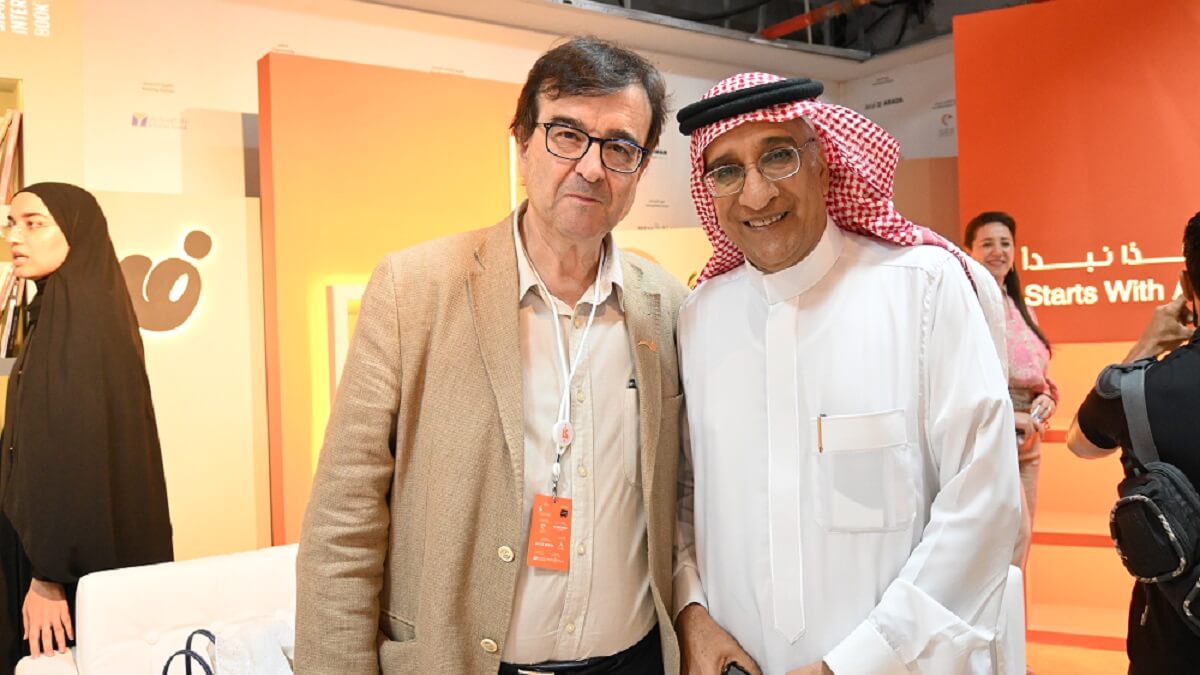
In your speech, you differentiated between writing novels and writing articles. You do both. Where are the limits of that freedom?
I tried to explain in the debate that they are different things, I will even say that they are almost different characters. The person who writes the articles is the citizen with his opinions; I have them like anyone else, and I write them in a newspaper. The article writer tends to work with the rational; the novelist almost always works with the irrational, with impulses, with instincts. In the novel you give free rein to everything, to the darkest part of us all, and anyone who says they don't have it is lying.
Are there any articles that you have felt really uncomfortable with or that you have decided not to continue writing?
I admit that some of my articles have caused considerable uproar that I had not considered, but I assure you that I have never sought controversy. I have even written against the government I voted for, talking about the freedom that has been won. The day I start writing about something thinking that I'm going to look bad or that I'm going to upset someone, I stop doing it. In writing, we know that sometimes what you think can be uncomfortable for certain people, but if it's your honest thought, you have to say it. Literature is by definition uncomfortable. The kind that's just nice won't go any further.
The best literature almost always challenges our deepest convictions. The one who writes my articles is the citizen; and the one who writes my novels is my authentic self, which is more complex than the citizen, because it involves my passions, my dreams, my frustrations, my truth, what I have lived and also what I have not lived and would like to live. In my articles there are my opinions, which are less important; in the novels, the more serious things.
From what you say, do you feel more like a novelist than an article writer?
I take my articles very seriously, I write and rewrite them a lot. They are very important, but the main thing is my books. I have received many journalistic awards and I feel like an impostor. Writing for the press, which is what I do, is not the same as being a journalist. My articles are more like, if I may say so, and without being pedantic, little ‘essays’ than journalistic articles. In my novels I can tell the world to fuck off, I even do it; in the articles I try not to; in the novels I can kill people, let off steam in a thousand ways, and I am me, my cursed part, my irrational part, which is as important as the rational part.
Journalists are more concerned with the immediate. I write for a Sunday supplement and I deliver the articles three weeks before they are published, although sometimes the essential doesn't change so much. In my last article ‘How to put an end once and for all to anti-politics’, Trump had not won the election, I don't mention it, but it is obvious that we are in that scenario. Nothing changes from one day to the next, everything obeys long and deep processes. In this sense, the analyses that are being made, with apologies, seem to me to be superficial.
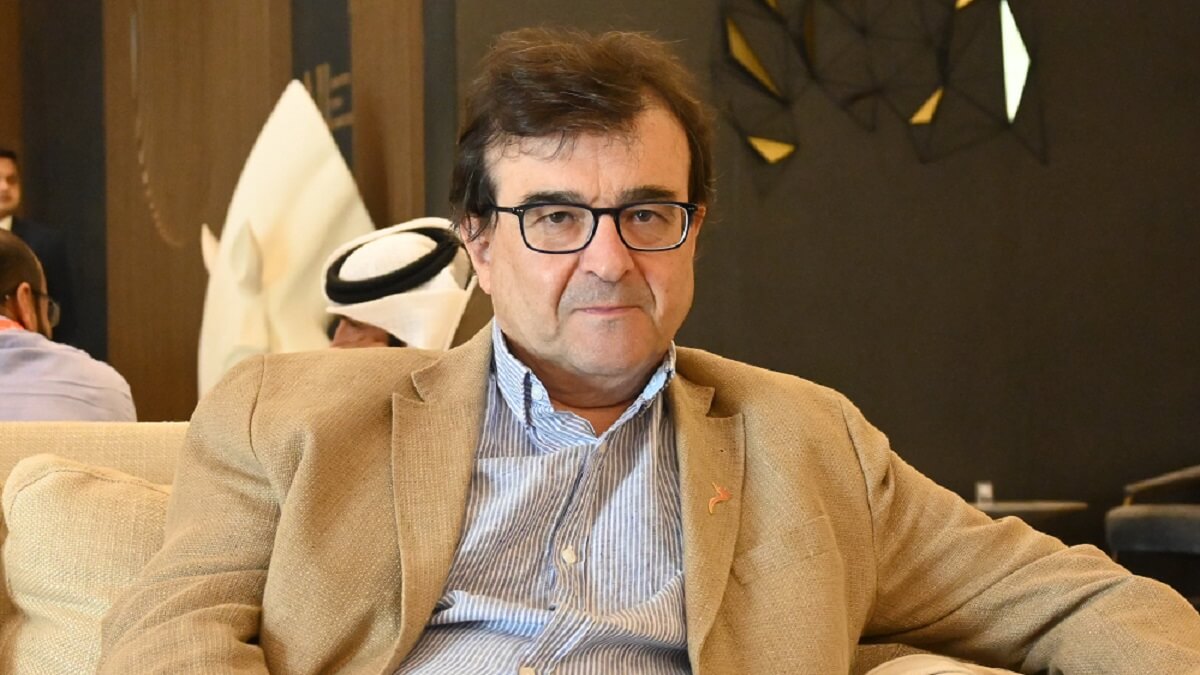
The war in Ukraine or Israel's war in Gaza are examples of what you are saying...
In both cases, you have to understand that this has been going on for a long time, if you don't see it that way, you don't understand what is happening. I try to keep an eye on the day to day. For me, journalism is very difficult, very complicated. Honestly, I would be incapable of it.
Let's leave current affairs. Let's go back 20 years, to the success of Soldiers of Salamis (2001). Has anything happened that you thought would happen since then?
That was a total surprise for me. I never imagined I was going to be a professional writer, never. I thought I was going to be a university professor, which was fantastic for me, who wrote novels, nothing more. What happened with Soldiers of Salomina was nonsense. When it happened I felt happiness and also a lot of perplexity.
Manuel Vilas came out of the world of ‘invisibility’, as he says, after publishing Ordesa. Soldiers of Salamis was his fourth novel, but he was not known. Is there an explanation for the success?
I adore Manuel. We were partners in the Planeta Prize, he was a finalist with Alegría. My book sold 2 million, it was huge. Manuel already had a certain renown, nobody knew me. I had read him before Ordesa. I think the difference with Vilas is that he had the absolutely legitimate desire to have many readers, to be a writer, when it didn't even cross my mind.
I lived in my own world, I didn't know any writers, I was at university, satisfied with my classes, and what I did want was to write. I think Vilas lived it in a healthier, happier way, much better than I did. For me, the success was so huge and unexpected that it almost crushed me. In fact, it took me a while to write the next book, which was also sadder and talked about it. I went from not existing to existing too much.
When you become famous, do you really change or do people stop treating you the way they did before?
Famous people are footballers, not writers (laughs). In my case, and I don't want to be vain, without any doubt, it was the latter. I was exactly the same.
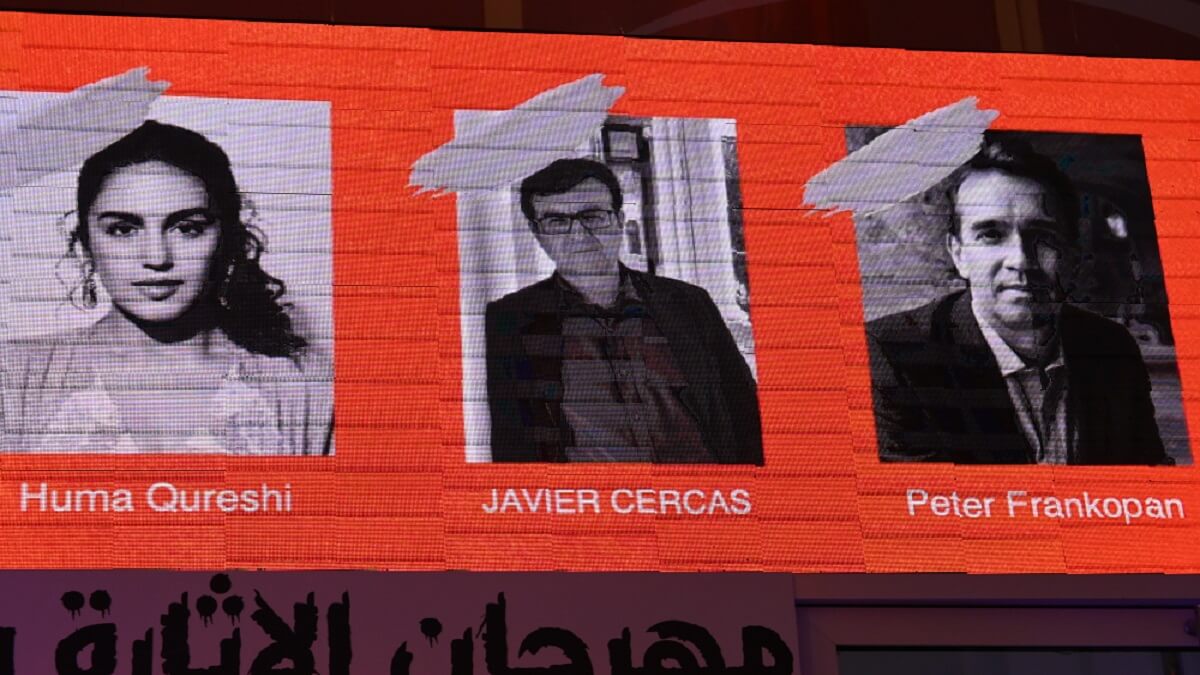
Envious?
I am 62 years old. Envy exists. I was very naïve then, with no experience in the literary world, even though I was almost 40. My world was the university in the United States, Barcelona, Gerona... I didn't change anything, neither the place where I lived, nor my family, nor my work... and, suddenly, I felt that something changed around me. Enemies appeared when I had never had them in my life. Envy? Of course it exists, and my mistake, within that naivety, was to feel ashamed to think that someone could envy me.
Looking back, things went the best way they could have gone, because, honestly, I thought I was crushed by what was happening, but I was able to keep writing. There are more cases than we think of writers who, after having too much success, stop writing.
Because of the pressure or because you think you're not going to get another work as good?
I put the pressure on myself. I know that no book of mine is going to have the impact that Soldados de Salamina had, when nobody knew me. There are writers who spend their lives hating the book that made them famous, like Flaubert with Madame Bovary. I am delighted, and I think my last book is as good or better.
You continued to publish and won prizes such as the National Narrative Prize and the Planeta Prize. Which of your books, because of the story, a character, the moment, the way you enjoyed it... which one would you choose?
It's complicated, because books are like children. The word enjoy is scarce, it's more of a passion that involves pleasure, pain, intensity, moments of depression... It's like when you fall in love, everything is very intense. Look yes, I choose The Bluebeard's Castle, the final book of the Terra Alta trilogy (Planeta 2019). I choose it because it is very simple, which is what I was looking for and, for me, the most difficult thing. Also The Tenant, a book that nobody read at the time, although it has now been translated into many languages. I wrote it with great energy and joy, I wasn't 30 years old, I lived alone in the upper part of a two-storey house, it was like a loft, there was an extraordinary amount of sunlight... It is a short novel that I loved when I reread it and of which I have fond memories.
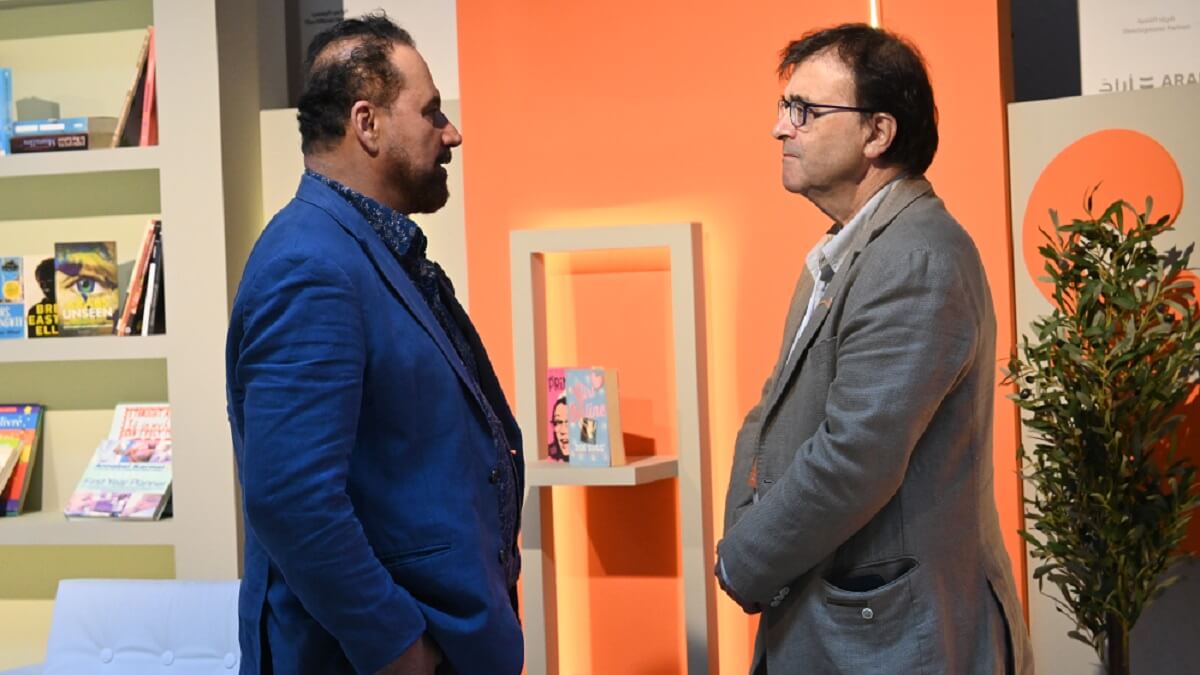
If we take The Outlws and Anatomy of an Instant, they are two books that could be by two authors. Can you be pigeonholed as a writer?
Thank you for your comment, because I detest the writer who repeats himself. Las leyes de la frontera is a book I love very much, because it is very close to my personal experience. It's true that sometimes obsessions are always the same and what changes are the ways of dealing with them.
And what are these obsessions?
(Silence). I ask myself questions. I'm considered a political writer, but I'm not. Literature has a dimension where the moral, the ethical and the aesthetic are the same things, there is no ethics without aesthetics. I often ask myself, what does decency consist of (laughs).
And do you have the answer?
No, I don't, that's why I write, if I did I wouldn't write, I would live. I write in search of answers, which is the very search for the answer. I don't have clear, univocal, definitive answers, but contradictory, polyhedral ones. The book itself is the answer. There is an epic dimension in my books, epic is associated with heroes and heroism is a form of moral excellence. Ethical excellence is like sainthood...and I wonder what that is? In both The Laws of the Frontier and Anatomy of an Instant we find questions about what it is to be good, what is better and worse, what it is to act well and what it is to act badly, the complexities of acting...
Can we say that you are a seeker and a non-conformist?
That's what a novelist is. You can't be a good writer if you're not a non-conformist. We write to know and that is the search for knowledge, which is also the search for pleasure and truth.
You occupy seat R of the Real Academia Española, which was previously held by Javier Marías, at the suggestion of Vargas Llosa, among others. Who would have been your candidate? What will your acceptance speech be about?
On 24 November, the ceremony of admission to the RAE will take place. I will speak on ‘Misunderstandings of modernity. A manifesto’. It's not very academic, is it (laughs).
It was another big surprise. It honestly hadn't even crossed my mind. It's true that Vargas Llosa and two other people proposed me, but it's the RAE's protocol. I admire Vargas Llosa, I've been reading him all my life, he was my discoverer. When the director called me to tell me, I told him that I was very grateful, but that he was not the right person. I raised a lot of objections, but he kept knocking them all down. There is a 17th century French writer, La Rochefoucauld, who said that he who refuses one compliment is because he wants two. So I thought that I, who am proud but not arrogant, should accept it. Even if people don't believe me, I have never sought or said anything.
I feel very honoured to be a member of the RAE. Who would I choose? It's difficult to give a name, there are so many, and not only writers, but also literary historians, architects, filmmakers, scientists, philologists, linguists... People forget that there are very few writers in the RAE... and I'm the youngest.
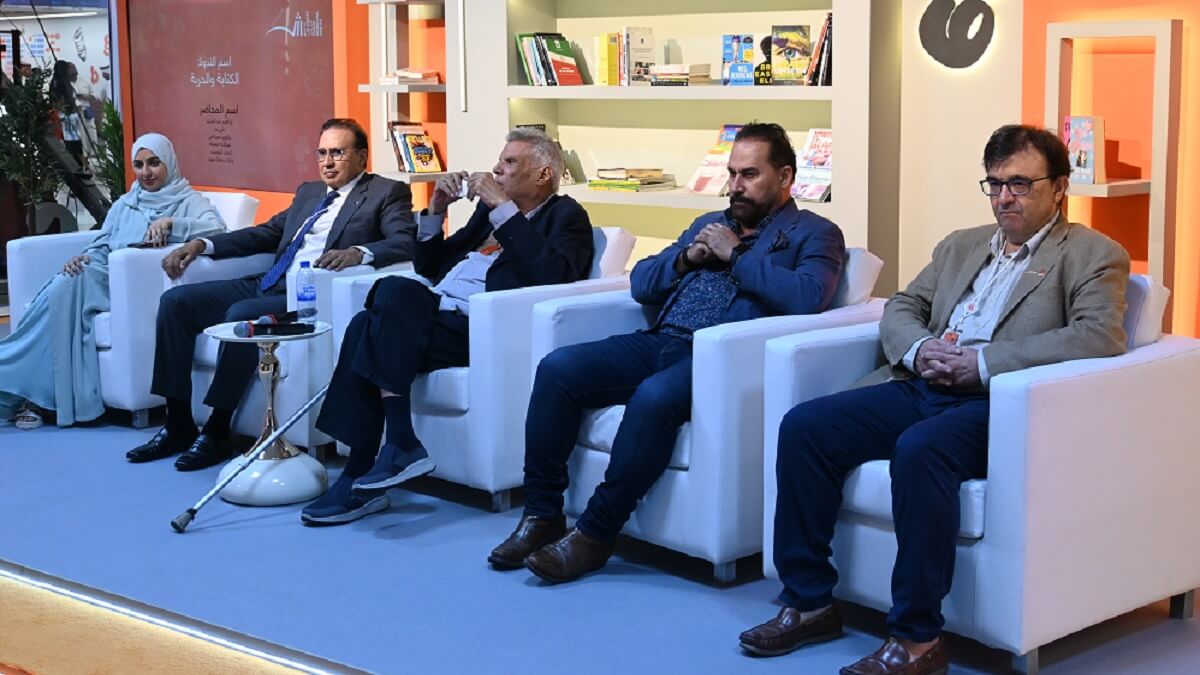
Without looking for it, this chair was another gift of life. Do you feel lucky?
I am ambitious, but in my work. To satisfy my ambition is to get a good sentence, a good paragraph, a good page, and I fight to the death with myself to get it. But not with what is beyond my reach. The prizes I have been awarded, more outside than in Spain, I have never sought them. One of the best books of the 21st century is called Borges, written by Adolfo Bioy Casares, his friend.
The book is a collection of their conversations throughout his life and it is extraordinary, hilarious, very intelligent... At one point, Borges tells him that if they give him the prize, he should not say that he hasn't done anything to win it, that he should pretend, otherwise he'll look terrible. Well, that's just it. I have so much work writing and being with my family that I don't have time for anything else. I'm going to say something I've never said before, I've been awarded more prizes outside Spain than inside, above all, for all my work, so I'm very happy that it's the Academy who, in a way, is giving me this first recognition, I feel very honoured and grateful. Sometimes it is understandable that outside your country you are more appreciated, especially if you have become a controversial person because of your political opinions, because of the sensitive subjects of my novels such as the civil war or the Transition... All of this generates enmity and people throw lies and hoaxes about me...
Are you affected by the situation, by these hoaxes?
Anyone who says it doesn't affect you is lying. I am flesh and blood, and although I try not to read what people say about me, sometimes it is inevitable. If they launch a hoax saying that you say the army should invade Catalonia, it gets to you in the end. I am not and never will be on social networks, unless they change radically. I'm not saying it's all bad, they can be very useful, but not for me. Hemingway said that you should never read book reviews because if you believe the good ones, you have to believe the bad ones. I only read two or three critics. I've been accused of everything and it affects me, because it affects my family, and, in the end, it scares you.
Finally, can you tell us about your next novel?
It comes out in April: El loco de Dios en Mongolia (Random House). It's a book, and it's not going to sound good, that no writer has ever had the chance to write. A non-fiction novel, a thriller, like all my books, with an enigma and someone who wants to solve it, where genres are mixed: essay, autobiography, chronicle, travel book... At one point, hence my previous comment, I was offered what no writer had ever been offered before: to enter the Vatican and talk to whoever I wanted. I am an atheist, but, like all Spaniards, a cultural Christian. I travelled to Mongolia with Pope Francis, a Buddhist country, but I don't just talk about the trip, I talk about many things, and at the centre of it the greatest enigma in the history of humanity, you know what it is: the resurrection of the flesh and eternal life (laughs).





